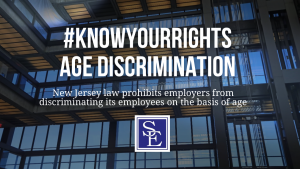A discriminatory trend has begun to become overlooked while many major companies review their anti-discrimination policies in the wake of the #metoo movement. Age discrimination remains very common in the United States, and particularly common in the technology industry. According to the EEOC, 70% of employees in the technology industry have witnessed or experienced age discrimination, while 40% of older tech workers report that they are worried about losing their jobs because of their advancing age. These statistics are highlighted by the recent influx of high-profile age discrimination suits filed against tech employers including Google and IBM. These cases have served to remind Americans that age discrimination is still rampant and must be kept in mind when pushing diversification agendas.

Google, or Alphabet, Inc., is one big technology corporation that has been hit hard with age discrimination suits over the last few years. The most recent of which, Robert Heath v. Google, Inc., finally reached a settlement on Friday, July 19th, in California. The current settlement offer would force Google to pay $11 million to job applicants who allege that they experienced age discrimination during their application processes.
Mr. Robert Heath was a highly skilled engineer, with exceptional qualifications and over 30 years of experience in the field. Several years ago, Mr. Heath was recruited to submit an application for a job at Google and was subsequently offered a technical interview as a final step in the process. Mr. Heath’s interviewer was late to the interview and continuously interrupted Mr. Heath while he was answering questions. The interviewer refused to use Google’s own interface to transmit part of the technical portion of the interview, instead forcing Mr. Heath to recite lines of code over the phone. The interviewer did not engage in good faith with Mr. Heath, intentionally disrupting the interview and sabotaging Mr. Heath’s chances of being hired. Following the interview, Mr. Heath was denied the position at Google.
 New Jersey Employment Lawyers Blog
New Jersey Employment Lawyers Blog

